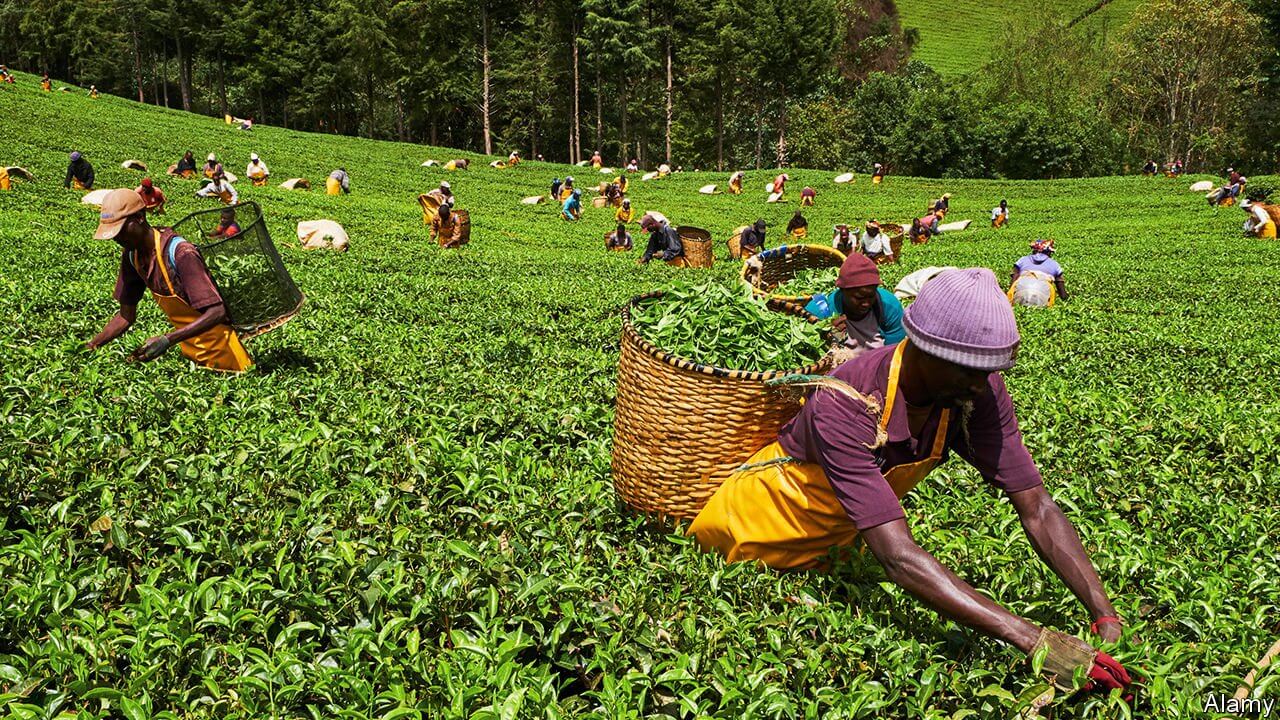The Kepsigis and Talai tribes from Kenya’s Kericho county filed a lawsuit against the United Kingdom (UK) government in the European Court of Human Rights (ECHR) on Tuesday demanding financial reparations and an apology for colonial-era atrocities and land theft committed by British settlers in the 20th century.
The two communities have repeatedly voiced their grievances to the British government for the abuses suffered by their ancestors under colonial rule. In their latest petition, the groups alleged that the British forcefully evicted the Kepsigis and Talai from their ancestral lands and indulged in unlawful killings and enforced disappearances.
The group’s lawyer, Joel Kimutai Bosek, alleged that the UK has not only violated the European Convention for Human Rights, but also “ducked and dived, and sadly avoided every possible avenue of redress” to the victims. He added that the lawsuit was filed so that “history can be righted,” as the claimants have demanded an investigation, $200 billion as compensation, and a public apology.
Survivors of colonial abuses from Kericho County in Kenya have today filed their cases against the UK Government at the European Court of Human Rights.
— Samira Sawlani (@samirasawlani) August 23, 2022
They were forcibly removed from their ancestral lands during the period of British Colonial rule: pic.twitter.com/ulmGj0ApBl
Representatives of the Kipsigis and Talai clans hailed the move as a “big milestone” and “the culmination of many years of attempts to engage with the British government directly in order to amicably resolve the issues.”
The Talai accuse the British colonists of seizing swathes of fertile land between 1902 and 1962 to pave the way for tea plantations. When they resisted, they were subjected to mistreatment, with incidents of rape, murder, torture, and arson. Those evicted were detained as per the 1901 Talai Removal Ordinance and then forced to live in the tsetse fly- and mosquito-infested Gwasii Hills near present-day Lake Victoria, killing an incalculable number of people and livestock.
After Kenya won its independence in 1963, the Talai returned to their homeland but continue to reside there as squatters, as the lands are now controlled by tea estates and multinational firms such as Unilever, Finlay’s, and Lipton. Although Kenya is the world’s leading black tea exporter, the historical owners of the lands who used to farm this tea have not seen the wealth trickle down.
#Kenya: Evicted Rift Valley Land Owners Sue Britain Over Colonial Land Seizure
— News Central TV (@NewsCentralTV) August 23, 2022
British colonisers violently expelled Kenyans from the Rift Valley, according to their attorneys.
They say the UK's handling of their complaints violates the European Convention on Human Rights. pic.twitter.com/EbiosOg7Yg
Against this backdrop, six United Nations (UN) Special Rapporteurs in a 2021 report lambasted the UK government for its “alleged lack of accountability and effective remedy for the victims of gross human rights violations,” noting that at least half a million Talai and Kepsigis suffered gross human rights abuses at the hands of British colonists for decades. The UN also lamented that many continue to suffer due to the theft of their ancestral lands.
To this end, 100,000 members from the two communities filed a complaint with the UN in 2019 but to no avail. Furthermore, in May, 100,000 members of the Talai clan wrote a letter to UK’s Prince Williams narrating the atrocities suffered by their ancestors—unlawful killing, sexual violence, torture, and arbitrary detention—and sought his intervention in securing damages and an apology from the British government. The Kepsigis and Talai’s efforts to meet UK Foreign Secretary Liz Truss in the same month were also unsuccessful.
The report, which was made public on Monday, highlighted the horrific abuses people in a part of western Kenya - now Kericho county - were subjected to.
— Kennedy Wandera (@KennedyWandera_) August 3, 2021
The authors had handed it over at the end of May and gave the UK authorities 60 days to respond.https://t.co/XBQdIhWAEm
Keeping this in mind, the groups have now approached the Strasbourg-based ECHR for a resolution. While the Court has delivered momentous verdicts in recent times, including ordering an eleventh-hour grounding of flights under the UK-Rwanda Migration Pact in June, relief for the Kenyan tribes is subject to their application being admitted, following which there may be months or even years of hearings.
While the UK has often shied away from offering apologies and compensation to victims of British colonial atrocities, it did issue a rare apology and offer a settlement in 2013 in response to claims made by Kenyans who lived through the emergency period and the Mau Mau insurgency between 1952 and 1963.
The Kipsigis and Talai, however, have stated that their case cannot be clubbed under this agreement.
Tuesday’s petition dragging the UK government to Court comes at a critical juncture for both the UK and Kenya, with both countries undergoing changes to their leadership. In fact, reports of the UK’s involvement in Kenya’s recently concluded presidential elections has raised eyebrows. However, UK High Commissioner to Kenya Jane Mariott has brushed this speculation off as “misinformation.”
UK on Kenya’s elections. #KenyanElection2022. As a matter of communication, no one can’t control misinformation but everyone can clarify and provide clarity if necessary! https://t.co/yjR2ILOtST
— Abdi Barud (@AbdiBarud) August 22, 2022
Moreover, regardless of the ECHR complaint, the two countries have in recent years strengthened their ties in defence, trade and investment, climate cooperation, and diplomacy.
That being said, calls for reparation from former British colonies appear to be gaining renewed momentum, with Ghanaian President Nana Akufo-Addo demanding compensation for slave trade earlier this month. Similar demands were made during Prince William and Duchess Kate’s Caribbean tour earlier this year.

